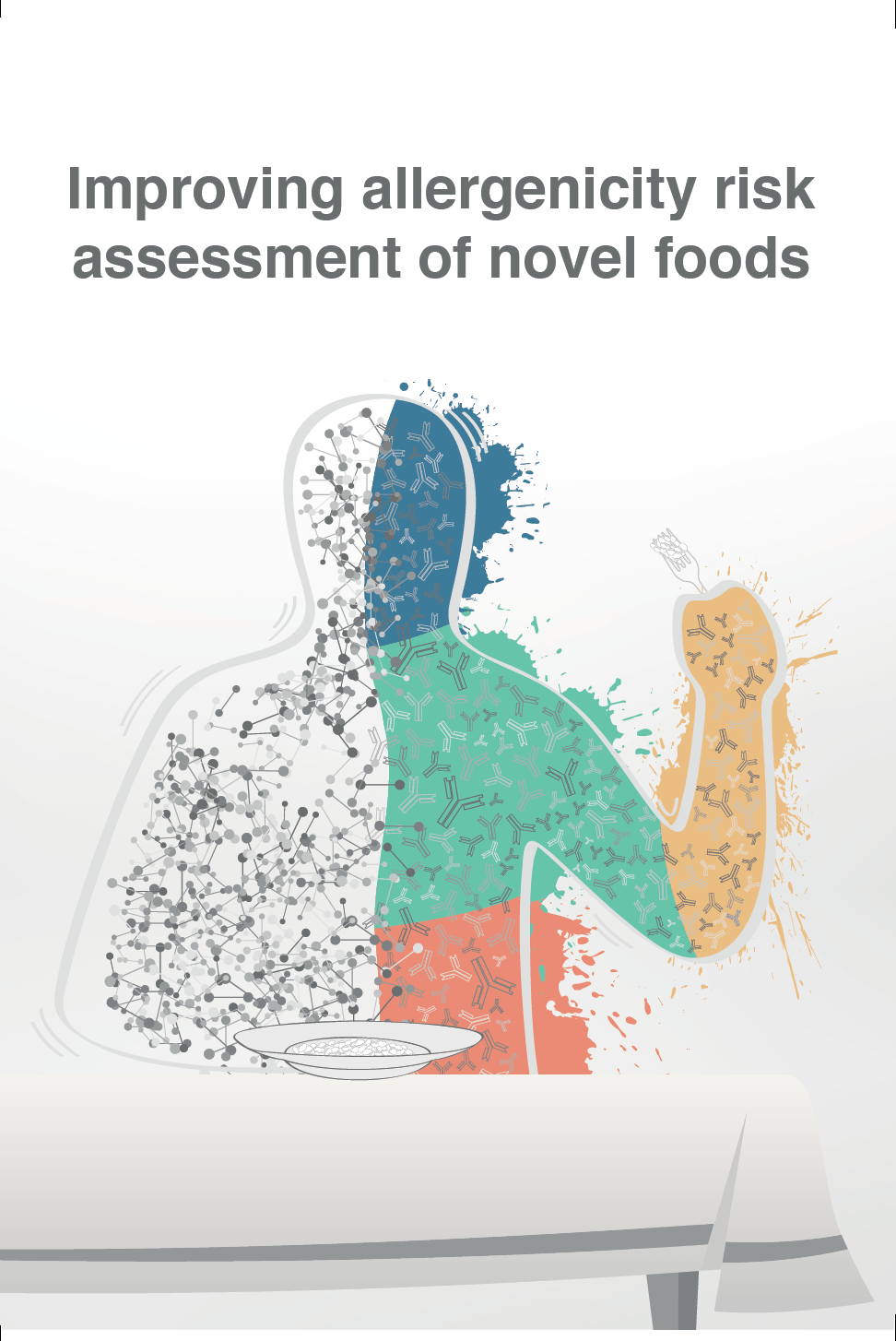Researchers at UMC Utrecht have found that the ability of a protein to elicit antibodies in our body is very suitable for expressing the allergenicity of novel food proteins. In addition, a roadmap was created that can be followed so that regulators can set acceptance or rejection criteria for novel food proteins. These were the main take-aways from the studies presented by Mark Smits in his PhD thesis.
Both protein consumption and the world’s population are increasing, which leads to an urgent demand for new sustainable food protein sources. However, introduction of novel protein sources (e.g. from insects or algae) is not without risk. Novel protein sources may induce new food sensitizations and allergies and/or can elicit cross-reactive allergies in already allergic individuals. It is therefore pivotal that we can accurately assess and predict the allergenicity of novel proteins. Predictive methods that can measure the allergenicity accurately can be developed more effectively when it is agreed upon which measure should be used to characterize allergenicity. Regulators should make this decision to direct the development of predictive test methods. Several parameters have been proposed in the past that can be used to assess and express allergenicity and regulate upon.
In his thesis, Mark Smits (Department of Dermatology and Allergology, UMC Utrecht and TNO, Utrecht) and colleagues evaluated the sensitizing potency of a protein, that they think has the highest potential to accurately characterize the allergenicity of novel food proteins. Additionally, they provided a framework which includes multiple steps that can be followed to allow regulators to establish acceptance or rejection criteria for novel food proteins. Mark Smits also investigated if certain methods have the potential to predict the allergenicity of proteins and how these may be improved. The gene expression of blood cells exposed to proteins can potentially be used in this regard. However, he also found that digestion and uptake of proteins can affect the allergenicity of proteins. This should be taken into account when developing the much needed methods that adequately can assess allergenicity.
Mark Smits concludes: “The main result of my research is that we have found that a specific property, namely the ability of a protein to elicit antibodies in our body, is very suitable for expressing the allergenicity of novel food proteins. In addition, we have created a roadmap that can be followed so that regulators can set acceptance or rejection criteria for novel food proteins.”
Food allergy is an immune system reaction that occurs soon after eating a certain food. Even a tiny amount of the allergy-causing food can trigger signs and symptoms such as digestive problems, hives or swollen airways. In some people, a food allergy can cause severe symptoms or even a life-threatening reaction known as anaphylaxis. Food allergy affects an estimated 8 percent of children under age 5 and up to 4 percent of adults. While there’s no cure, some children outgrow their food allergies as they get older. It is easy to confuse a food allergy with a much more common reaction known as food intolerance. While bothersome, food intolerance is a less serious condition that does not involve the immune system.
Mark Smits (1992, Geldrop) defended his PhD thesis on January 19, 2022 at Utrecht University. The title of his thesis is “Improving allergenicity risk assessment of novel foods. Supervisors were prof. dr. Geert Houben (Center for Translational Immunology, UMC Utrecht and TNO, Utrecht) and prof. dr. André Knulst (Department of Dermatology and Allergology, UMC Utrecht). Co-supervisors were dr. Thuy-me Le and dr. Kitty Verhoeckx (both Department of Dermatology and Allergology, UMC Utrecht). The studies in this PhD thesis are part of the international ScenoProt project. In August 2021 Mark Smits started as a Life Sciences Consultant at Quality by Design and works also as a Senior Associate Quality Assurance at Amgen, both in Breda.

